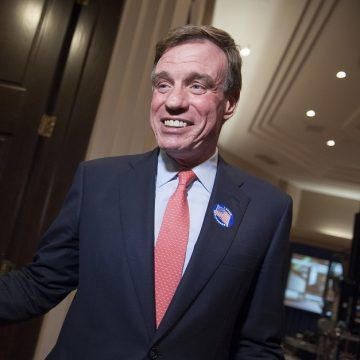
U.S. Senator Mark Warner recently became the latest federal lawmaker to call for a federal online gambling ban. On July 5, the Virginia Democrat sent a letter to Attorney General Jeff Sessions calling for a ban.
In his letter to the nation’s top law enforcement official, Sen. Mark Warner said that online gambling sites of being “especially fertile platforms” for “money laundering, collusion, and other illegal activities.”
Online Gambling Myths
The charge is a familiar one, and shows a common fallacy anti-online gambling critics make when suggesting bans. Unregulated online gambling sites have been used for money laundering, but a federal ban on online gambling would create more unregulated online gambling sites.
Strict prohibition of a popular activity does not end that activity, but drives it underground. In an underground economy, regulatory agencies and consumer protections do not exist. In the shadows, money laundering and collusion becomes easy.
Why Regulated Online Gambling Is Safe
In the regulated online gambling industries of New Jersey, Nevada, and Delaware, popular forms of gambling are regulated, licensed, and taxed. The government monitors activities, while insisting on consumer protections and responsible gaming. Helplines, self-exclusion lists, and problem gambling groups are supported and advertised.
Also, states like New Jersey require operators to use the latest age verification and geolocation technology. These assure underage gambling does not happen, while making certain that only New Jersey gamblers sign up to gamble. New Jersey gamblers receive the right to gamble, but residents of South Carolina or Utah cannot use those sites.
Lindsey Graham on Online Gambling
When Sen. Lindsey Graham first sponsored Restore America’s Wire Act (RAWA) back in 2014 and 2015, he made the specious argument that residents in his home state were harmed by New Jersey’s online gambling legalization. Using the common analogy that mobile gaming sites made every smartphone into a casino, Sen. Graham argued that South Carolina smartphone owners could log into a New Jersey online casino and play for real money. It is an argument made by countless others.
Lindsey Graham can be excused (somewhat) for his ignorance of geolocation technology. Graham famously does not use the Internet or his cellphone that often, something he and his congressional aides have joked about before. Geolocation technology is safe and reliable.
In fact, anyone who uses GPS technology in their car knows geolocation software works. Your GPS knows where you are at all times. The technology in smartphones works in the same way, assuring that anyone outside of New Jersey cannot play on New Jersey sites.
Prudent Online Casinos
The Federal Bureau of Investigation seems to support the idea that legal, regulated online gambling is the best way to go. In 2013, the FBI released an (oft-misquoted) paper saying that online gambling is vulnerable to money laundering. After detailing the methods used to fool financial institutions, the FBI report stated, “Many of these methods could be detected and thwarted by a prudent online casino“.
In short, regulated online gambling is the way to protect against money laundering, collusion, and other financial crimes — not a federal ban. For instance, regulated online casinos and poker sites could be made to comply with the Bank Secrecy Act.
Having a gambling license allows a live or online casino operator to set up games with a house edge. While the results of an individual game are left to chance, the house edge all-but-assures the casino operator makes a profit over time. It is a virtual license to print money. Licensed gaming operators are going to comply with regulations, because losing their gaming license represents a huge risk.
Mark Warner Ignores Sessions’ Recusal
Sen. Mark Warner, who receives high marks for his role in the Senate Intelligence Committee’s probe in Russian cyber-attacks, made another mistake in addressing his letter to AG Jeff Sessions. The US Attorney General recused himself from the online gambling debate, because he uses the same lawyer (Charles Cooper) who lobbies on behalf of Sheldon Adelson for passage of Restore America’s Wire Act.
The senator therefore is addressing an official who plans to have no role in any deliberations online gambling ban. Deputy Attorney General Rod Rosenstein is the Department of Justice official who would oversee any policy changes involving online gambling.















